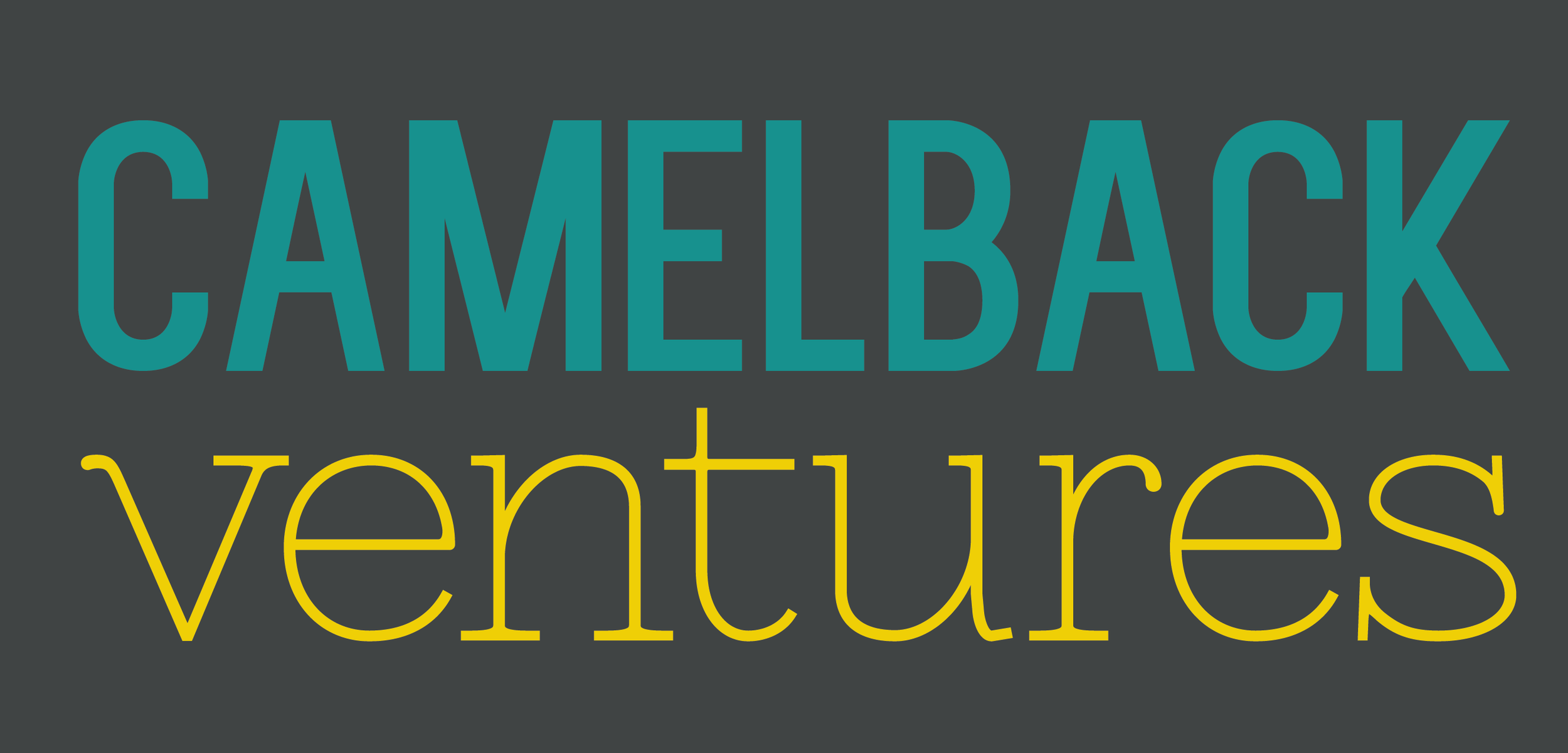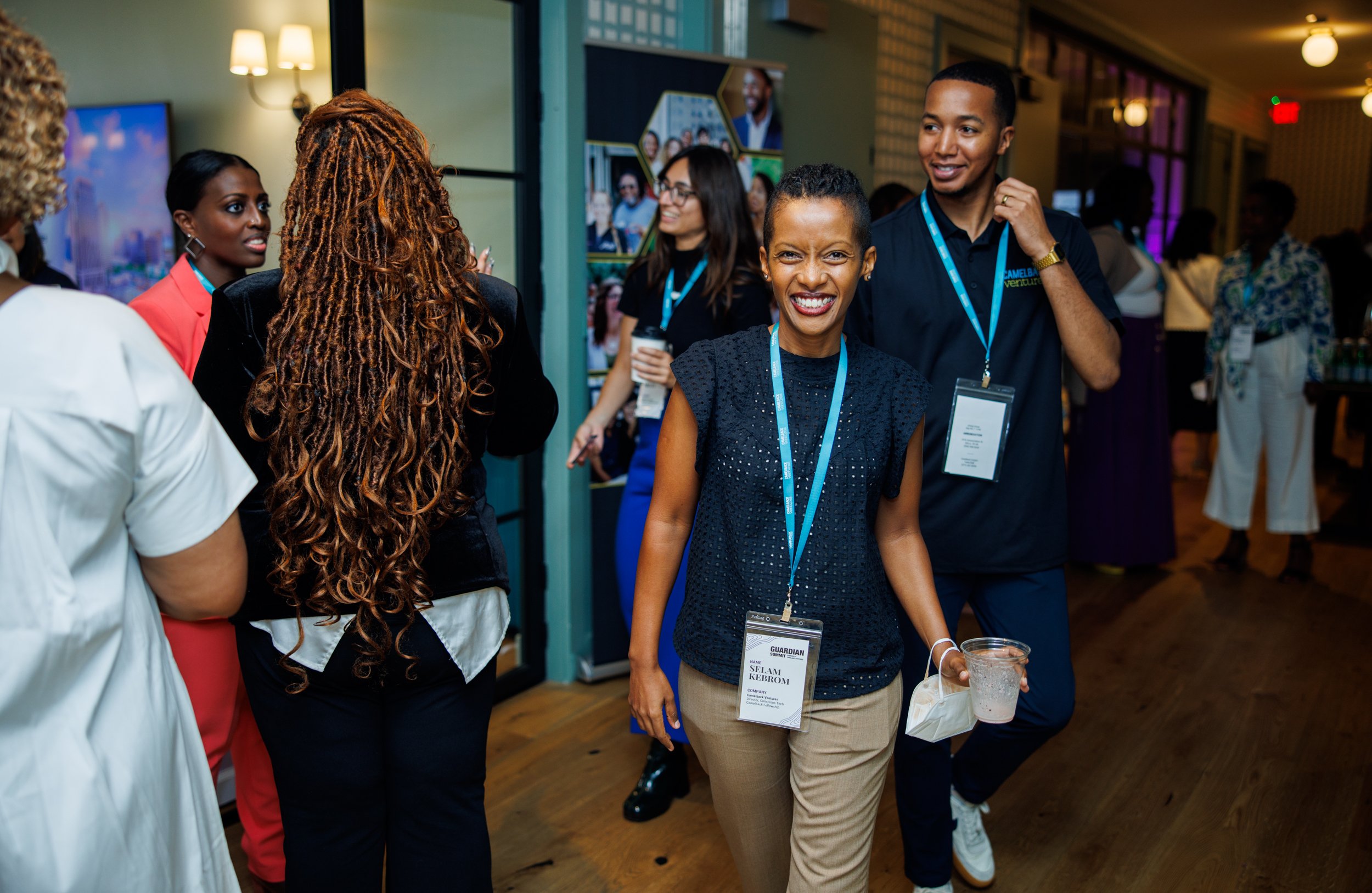Investing In The Wellness of Social Entrepreneurs of Color
Editor’s Note: July is #NationalMinorityMentalHealthAwareness Month and Camelback Ventures is shining a light on the mental health journeys of the diverse founders who are part of The Camelback Fellowship past and present. This blog is second of a two part series written by Camelback staff highlighting how our organization is proudly and mindfully investing in the wellness of the Founders we serve.
Investing in The Wellness of Social Entrepreneurs of Color
By: Selam Kebrom, Camelback Ventures Fellowship, Director of Conscious Tech
The hidden toll of entrepreneurship
Entrepreneurship has become increasingly ubiquitous, with individuals harnessing their talents and passions to launch new ventures. It’s often glamorized, with a strong emphasis on success stories and the allure of being one's own boss. However, this idealized image frequently overshadows the significant toll entrepreneurship takes on the wellness of founders.
I struggled a lot as an entrepreneur. I had never built a venture before and every day felt like a foray into the unknown. Some days, those unknowns felt exciting and other days they felt impossible. Based on my experience supporting entrepreneurs, I anticipated highs and lows. However, only when I became an entrepreneur did I understand how high the highs could be and how abysmally low the lows.
I thought I was alone in my experience since no one was talking about it. When I joined Camelback Ventures, I hesitantly shared my experience and realized then that this issue affects most (if not all) entrepreneurs. As more research is conducted on the toll of entrepreneurship (here are a couple articles among many - source and source), I wish more folks understood that the journey of entrepreneurship is equally exciting as it is terrifying. I also wish more folks understood that historically marginalized founders who are building social ventures shoulder a disproportionate higher burden which affects their wellness even more. In recognition of #MinorityMentalHealthAwarenessMonth, Camelback Ventures is publishing a series of features to spotlight the challenges BIPOC social entrepreneurs face and how we can collectively work together to support our founders so they don’t struggle alone.
Social entrepreneurship is harder than regular entrepreneurship
Social entrepreneurship has gained significant traction in recent years, as more individuals aspire to create businesses that not only generate profits but also address pressing social issues. While traditional entrepreneurship is already challenging, social entrepreneurship adds an extra layer of complexity that makes it inherently tougher. Let me share why:
Dual bottom line: unlike traditional entrepreneurs who primarily focus on financial gains, social entrepreneurs have a dual bottom line: profitability and social impact;
Addressing deep-rooted issues: social entrepreneurs often tackle deeply entrenched, complex societal problems that are resistant to quick fixes so finding effective solutions to these challenges takes time, collaboration and a long-term commitment;
Limited access to capital: while accessing funding is a universal challenge for entrepreneurs, social entrepreneurs face additional barriers because traditional investors are often hesitant to invest in ventures with a social mission, while traditional impact funders (ex. philanthropic organizations) are often hesitant to channel funds to for-profit ventures (even those with aligned social missions).
BIPOC social entrepreneurs have it even harder
While the research around the wellness challenges of social entrepreneurship is slowly growing, there’s a dearth of data on how social entrepreneurship uniquely affects BIPOC founders. However, that doesn’t mean the challenges aren’t there. Based on my experience supporting BIPOC social entrepreneurs at Camelback Ventures, we’ve noticed some patterns:
Deep emotional investment: while true that folks who are proximate to the communities they serve bring a unique and powerful perspective, this proximity can also expose BIPOC social entrepreneurs to repeated trauma and force us to relive painful parts of our upbringing. The act of advocating for change while being confronted with past trauma is very, very hard. Our personal connection to the issues often leads to a heightened sense of responsibility and urgency. While this emotional investment can fuel our drive, it can also lead to emotional exhaustion and burnout.
If we fail, our whole family suffers: the fact that many BIPOC social entrepreneurs don’t come from networks of wealth makes it even harder for us to access the financial resources we need to build successful social ventures. In many cases, we’re the first in our families to pursue entrepreneurship which adds significant pressure to a founder who must build a venture while trying to contribute to their family's financial stability.
Persistent systemic barriers hinder us significantly: BIPOC entrepreneurs face greater barriers in securing funding for their startups, which adds to financial stress and uncertainty (source). Experiences of racial and ethnic discrimination, both within the business world and in society at large, contribute to feelings of isolation, imposter syndrome and self-doubt. And despite BIPOC women leading the number of new ventures, prevailing gender norms still require them to be largely responsible for household labor.
What we’re doing about it…
At Camelback Ventures, we couldn’t ignore the reality that so many of the founders we support were struggling silently. Here are some ways you can join our efforts in supporting BIPOC entrepreneurs:
1. Create safe spaces: we work hard to establish safe spaces where our entrepreneurs can openly discuss their mental health challenges without fear of judgment to foster a sense of community and belonging so they know they’re not alone.
2. Address the issue head on: we don’t skirt around this issue. We talk openly about mental health challenges of entrepreneurship throughout our program and, when possible, connect our entrepreneurs to accessible and affordable mental health services tailored to their needs.
3. Work-Life Integration: we kept our fellowship virtual because we realized it made it much more accessible to folks, especially those who were caregivers so they didn’t have to worry about participating in our program and being away from their families for extended periods of time (which would just add to their stress). We love it when we see their families during our virtual sessions. We also emphasize the importance of setting boundaries and resting, even if that means they can’t do all the things we ask of them.
We’re not the only ones who realize this is necessary. Common Future writes about how they’ve worked to create space where their entrepreneurs can feel safe and heard.
Final thought
There’s so much more we can and should be doing as an organization and as an industry to support BIPOC social entrepreneurs to build ventures our world desperately needs. We’re still learning how to do this well at Camelback Ventures so if you’re an organization with resources to support this effort, please get in touch. My hope is that by bringing this issue to the forefront other entrepreneur support organizations and funders dedicate more resources toward supporting the mental wellness of BIPOC social entrepreneurs.
You can learn more about the Camelback Fellowship by visiting our website. If you know of a founder who might benefit from our supportive and immersive program encourage them to apply. Our next application cycle opens September 3-24, 2024. Stay in the loop by signing up for Camelback’s newsletter.
_________
About The Camelback Fellowship:
Camelback Ventures is committed to empowering entrepreneurs to create impactful solutions that address socio-economic inequities. We offer a rigorous accelerator, the Camelback Fellowship, for innovative and driven entrepreneurs.
The Camelback Fellowship is a 15-week program that supports the development of both founder and venture. Since 2015, Camelback has supported 163+ entrepreneurs (many of whom have been recognized in Forbes 30 Under 30, received fellowships such as Echoing Green and Richards Draper Kaplan, and collectively gone on to raise over $50 million).



